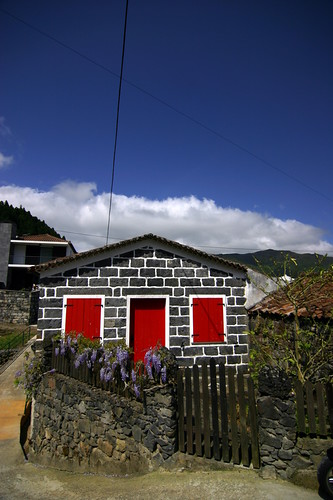The Azores are situated in a climatologically high-pressure area. As a result, the weather pattern is significantly different from that of the mainland of Europe and is generally more gentle (subtropical). Even though the Azores are situated at the same latitude as countries such as Greece, Portugal and Spain, the humid sea climate is strikingly different from the Mediterranean climate.
The islands are covered by green and flowering plants throughout the year. Different plant species alternate their flowering period over the seasons. During winter, many calla’s and amaryllises can be found while in summer, flowering ginger plants occur all over the islands. The patterns found in the vegetation are a result of severe rain showers which occur throughout the year, with a peak in the months of January and February. Towards the west end of the archipelago the amount of precipitation increases. Yearly, the westerly island of Flores receives twice as much rainfall as the easterly São Miguel.
The average air temperature between May and September is 25 °C. Night-time temperatures during this season rarely drop lower than 18 ºC. The average winter temperature is 16 degrees and frost has only been recorded at altitudes higher than 2000 m above sea level. During summer, sea surface temperature steadily rises to about 25 degrees.
All the information and local insights you need for the most wonderful holidays in the Azores Islands.
Thursday, March 13, 2008
Climate - Azores - Açores
Subscribe to:
Post Comments (Atom)
Açores - Azores - São Miguel - Furnas
Açores - Azores - São Miguel - Furnas , originally uploaded by Luis Miguens .

-
Açores - Azores - São Miguel - Furnas , originally uploaded by Luis Miguens .
-
Impressive group of lavas next to the sea, perforated by many grottoes and tunnels. Volcanic arches over the sea. Rocks with curious shapes,...
-
Terceira Island ( Portuguese: Ilha Terceira) is an island in the Azores, in the middle of the North Atlantic Ocean, with an area of 396.75 k...


1 comment:
Thanks, that's very informative, just what I was looking for.
Post a Comment